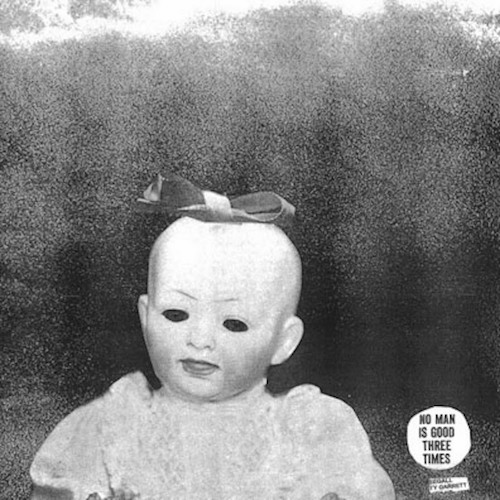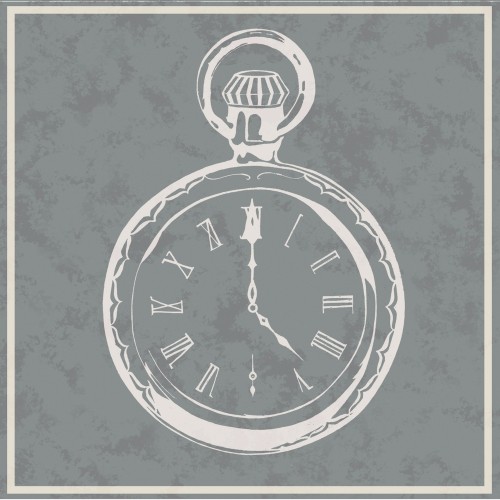 Release Date: May 26th, 2012
Release Date: May 26th, 2012





When Steve Zissou looks out of his brilliantly yellow submersible at the end of Wes Anderson’s The Life Aquatic With Steve Zissou, he sees something remarkable staring back at him: a technicolor, jaguar patterned shark whose existence he had basically fabricated up until that very moment. Among his friends/enemies/attorneys, Steve has a private, tragic moment of wondering whether the shark remembers him from a previous encounter taking the life of Steve’s best friend. The scene is full bloom cinema… and it’s soundtracked by Sigur Rós.
It’s been nearly thirteen years since (one of) the seminal Icelandic band recorded and released “Starálfur,” the song Wes Anderson used in the climax of his fourth movie. Today, the alien mystique of the post-rock glaciers has faded, somewhat due to the last two Sigur-involved records (2008s Meō Suō í Eyrum Viō Spilum Endalaust and lead singer Jónsi’s solo album, Go) being more worldly and accessible. Those two records brought the band far more popularity than anything Agaetis Byrjun would’ve hinted at in their early career, yet the core of Sigur Rós’ paradoxical aesthetic remained. Sigur Rós, for good or ill, are one of the easier bands of the past decade to identify, but possibly the most difficult band to categorize, contextualize or compare.
Valtari, strikingly, is a marked turn back toward the mysterious atmospheric frailty of former Sigur Rós records like Von, Agaetis Byrjun or, most accurately, the inanely titled (). Checking in at a slender eight tracks and a relatively anemic fifty-four minutes, one might on its face mistake this for a tossed together album of Sigur Rós tropes, the kind of thing that satiates casual listeners but leaves artistic foraging alone for a little while. Perhaps there would even be a traditional single somewhere in there, akin to “Gobbledigook.” Not so. While Valtari certainly treads familiar ground, it’s a thoughtful update on the band’s post-rock trademarks, while continuing to expand into more floral and overtly cinematic territory.
The most tangible holdover from the immediate previous Sigur Rós records is the sometimes grating presence of a choir. Long a tool of the overly dramatic, the children’s choir was a part of one of the weaker songs on Meō Suō, and once again contributes to the limpest track here, “Varúō.” There’s a slightly better return on investment on “Dauōalogn,” but there still a cognitive dissonance between the band’s recent ideals about what makes a beautiful, world-spanning Sigur Rós song and something that devolves into a cavernous echo. The band’s more recent work has trended toward telling it’s scope instead of showing it – Valtari, at least for most of its movements, seems possessed to do differently.
You can tell a lot about who a person is by their favorite Sigur Rós record. () are the introspective headphone-y types, Takk are the indie-rockers and Meō Suō are the latecomers to the party. What’s so striking about Valtari is that it hits almost all of the necessary bases to satiate each version of the listener. “Rembhinútur” has the dramatic, percussive chorus of a Takk all-timer, while “Varōeldur” has the beautiful, stunted cooing that made the first half of () so midnight gorgeous. The choral elements are really the only tangible relation back to Meō Suō, which is a shame, since Valtari could’ve probably used a bit more songcraft in its weaker moments.
But in the end, the great Sigur Rós records are a reflection. Songs like “Ekki Múkk” or the rainfall-like “Fjōgur Píanó” aren’t so much stories or dispatches from the minds of talented songwriters – they are portals inward, shining a reflection on those aspects of your life that such ambient transcendency bears out. Steve Zissou saw exactly what he wanted to see, and right then the Sigur Rós song that brings to mind most the wish fulfillment fantasy begins to play. Theirs is a formula that no one else has been able to accurately borrow, steal or copy, since it seems that they operate with little regard for pretension or controlling the artistic interpretation of their music. Valtari is not the best Sigur Rós record of all time – far from it. But even with its demerits, it still finds the band walking back towards what made them great in the first place – that mysterious clairvoyance that begins an interior monologue. Perhaps the reason Sigur Rós are so impossible to contextualize is because they take on the personality of their listener and become whatever the listener wants them to be. Valtari is not completely successful at this, but after the misstep that was Go, it’s a step back in the right direction.
Sigur Rós – Valtari tracklist:
- “Ég Anda”
- “Ekki Múkk”
- “Varúō”
- “Rembihnútur”
- “Dauōalogn”
- “Varōeldur”
- “Valtari”
- “Fjōgur Píanó”


